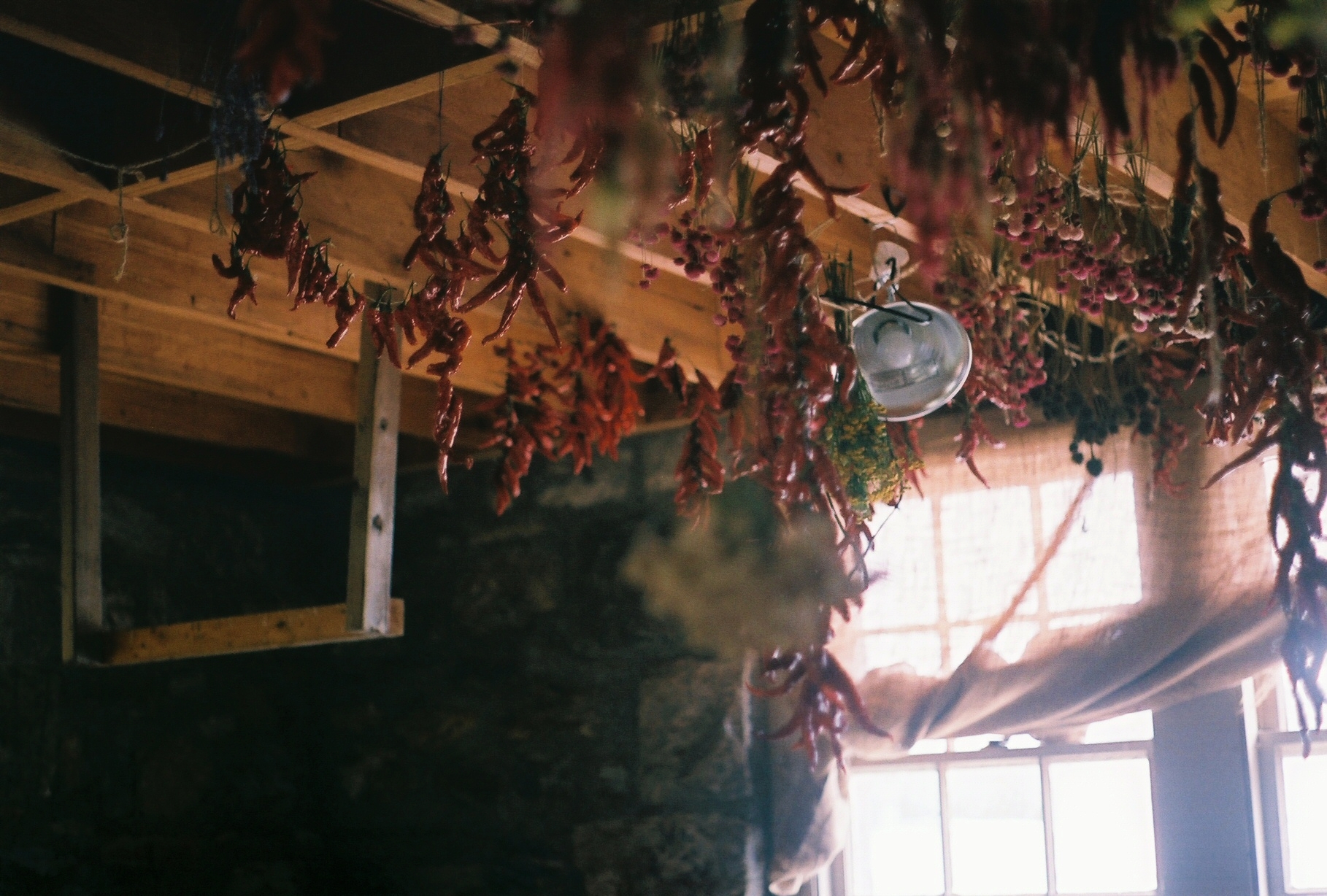I left Portland thinking that I was on the verge of becoming the person I wanted to be. My big dream had become a reality: I’d been accepted to graduate school. I was about to become scholar, a creative, a put-together person who listens to their voicemail. But now, here I was, putting on mascara at three o’clock in the afternoon. My first (and only) social interaction of the day would be with the clerk at the corner market. I’ve gotten to know the houses that sit between mine and the market. I walk there almost everyday for something, maybe green beans or licorice. Mostly I just need the air. The gardens have changed gradually since I moved in, but on this day the change was emphatic. The first frost had come the night before. And everywhere everything was dying. In front of the church, the snapdragons had been pulled out by their roots. The grass was wilted over and clinging limply to the curb.
Inside the store, Paul Simon’s Slip Sliding Away was on the radio. It was a song I'd heard a thousand times, but for the first time the words really shook me. Autumn---the celebrated season of New England---was giving way to the season I’d been warned about. All of it had gradually slipped away. Not just the season, even, but parts of myself, too. I hadn’t touched my camera in months. Somewhere I'd stopped being the girl chasing her dreams and had become the girl crying in a grocery store aisle while staring at a bottle of cabernet.
I needed to see something or someone flourishing, so, I set out to visit a friend who had also started a new life here recently. Nichole is an apprentice in the flower and herb gardens at Stone Barns, a non-profit farm and education center just outside of New York City.
 In the hoop-houses it was every season. Microgreens pushed up through the soil in rows. Sungold tomatoes were ripe on the vine. But outside, it was just like what I'd seen in New England. The peonies were crumpled like burned paper. Even the globe amaranth---defiant in fuchsia and Shiap pink---were being cut that day.
In the hoop-houses it was every season. Microgreens pushed up through the soil in rows. Sungold tomatoes were ripe on the vine. But outside, it was just like what I'd seen in New England. The peonies were crumpled like burned paper. Even the globe amaranth---defiant in fuchsia and Shiap pink---were being cut that day.
“How do you do it?” I asked her. I knew that Nichole helped to plant the terraces last spring. She’d put her knees on the ground and drawn her finger across the earth, placing a row of seeds in the part she made before folding the dirt back over again. With her care, the seeds had sprouted and become something beautiful. And now all of that was dying.
 She replied with graceful acceptance. “It’s hard. But I like seeing something come full circle”. I knew she was right---I’ve seen the Lion King. But, I kept thinking about the churchyard snapdragons, disappearing in a compost pile somewhere. Sure, they were returning to the earth from where the came, but they had once been exuberant. The change felt harsh and unfair.
She replied with graceful acceptance. “It’s hard. But I like seeing something come full circle”. I knew she was right---I’ve seen the Lion King. But, I kept thinking about the churchyard snapdragons, disappearing in a compost pile somewhere. Sure, they were returning to the earth from where the came, but they had once been exuberant. The change felt harsh and unfair.
Then Nichole took me to the drying room. Rows of soybeans were hung up in bunches. Statice and cockscomb were pinned to the rafters and the globe amaranth was being tied for drying. There were wooden bins full of gourds and screen drawers filled with herbs. Most of them would become something else, used in teas or tinctures. Some would be saved for seeds. Nichole picked up a clipping of rosemary and ran her fingers along the stem. With one quick pull the leaves were stripped. “Full circle.” She said. And I finally knew what she meant.
 She had followed these flowers from start to finish---and here we were at the start again. I guess circles are comforting that way. The further you are from where you began, the closer you are to the next beginning.
She had followed these flowers from start to finish---and here we were at the start again. I guess circles are comforting that way. The further you are from where you began, the closer you are to the next beginning.




























 Dear Clara,
Dear Clara,





